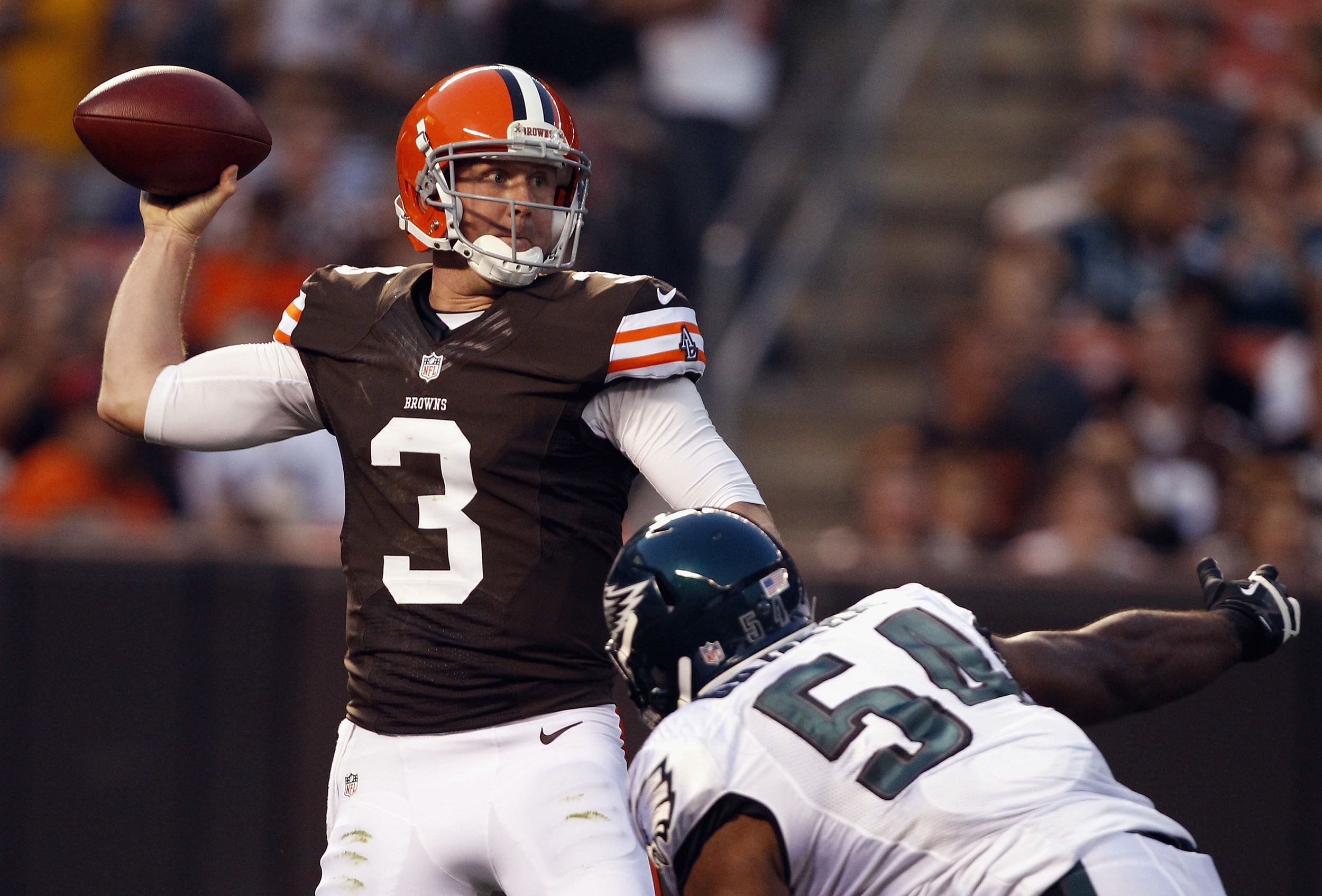
You can label the Andy Reid-Joe Banner power struggle an unfounded conspiracy theory. And you can buy the general storyline presented for Banner leaving. But you have to admit that there are serious holes in that party line.
According to Jeff McLane’s report, which might as well be the official press release, Banner approached Jeff Lurie a year ago about a succession plan. Why would he want to leave the Eagles, a team he built for the better part of the last two decades, a team owned by his childhood friend and in which he was the unquestioned CEO?
The official line is that he wants to “get involved with the world of buying and selling a sports team with the possibility of becoming part of a group that buys a team.” Geoff Mosher got Banner on the phone and the former team president said that he has been less involved over the last few years:
“I spend a lot of my time right now managing people that report to me and a modest amount of time doing things myself. More passive role than this same job was not long ago. I wanna be so busy I don’t have time to breathe. That’s my personality.”
Sorry, but I just don’t buy it. Less than ten months ago, Banner was at the forefront of the Eagles efforts to sign one of the most heralded free agent classes in modern memory. You can’t listen to this interview with Mike Florio and tell me that Banner was not personally involved in every aspect of those decisions and negotiations. “More passive role”? I don’t think so.
The changes clearly began this offseason, as Les Bowen wrote and McLane papered over. The extensions for longtime Eagles, the new willingness to talk with DeSean Jackson, the relatively quick deal struck with LeSean McCoy — all of it was done with Banner completely unseen. Howie Roseman became the point person for negotiations and Reid took an unprecedented, larger role.
Drew Rosenhaus’s comments about his negotiations over Evan Mathis, Jackson, and McCoy set a lot of the Banner talk in motion, and Paul Domowitch went back to him today in a great story:
“Howie really handled exclusively the negotiations for DeSean and Evan and LeSean,” Rosenhaus said. “Joe wasn’t directly involved in any of those discussions from the start of the offseason. I actually negotiated (undrafted free agent safety) Phillip Thomas’s contract with Joe. I remember him calling and joking about the fact that he wanted to work on at least one deal with me this offseason.”
“We struggled up to this offseason really to get the club to work on an extension with DeSean,” Rosenhaus said. “The team really wasn’t aggressive as it related to DeSean’s negotiations until this offseason. I don’t know if there was a power struggle or not. There’s no way for me to know that. But I do know that things changed in terms of the Eagles’ approach to DeSean after the season.”
Those comments suggest that Banner has been marginalized since the end of the disastrous 2011 season, a season for which he was directly responsible for many of the controversial decisions — free agency splurge, stonewalling DeSean, angering Asante Samuel (basically everything up to Juan Castillo). You can connect the dots.
Domo reads the tea leaves and argues that Reid wanted Jackson extended and blamed much of last season’s locker room troubles on Banner’s inaction on that front. Les’s piece today takes a slightly different route, arguing that Lurie “was genuinely at his wits’ end over the Eagles’ sour image in Philadelphia, the inability to connect with the fan on the street.” His solution was to isolate Banner and loosen up Reid.
Either theory makes more sense than Banner’s self-proclaimed reasoning. If he had dropped out of football to pursue his philanthropic interests, one might understand. But if you want to stay in football, you don’t leave that job willingly — especially without a new, seemingly better position already lined up.
I’m sure it was painful for Lurie to take the reigns away from his friend, but that’s the kind of decision he has to make as an owner. And by delaying the announcement and concocting an elaborate and not-entirely-convincing exit story, Lurie gives Banner as gracious a departure as he can manage. The new “Special Advisor to the Owner” even has a fall-back job at NovaCare for as long as he needs.
We will never know the full truth, but let’s not be naive. There’s the official story, and then there are the explanations that actually make sense.
Photo from the Philadelphia Eagles.


